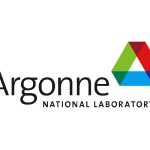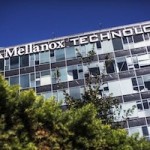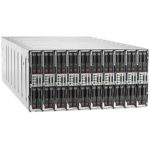IBM and Stone Ridge Technology have announced a new performance milestone in reservoir simulation that will improve efficiency and lower the cost of production. Working with Nvidia, the companies reported that they had beat previous results using one-tenth the power and 1/100th of the space by employing GPUs alongside a GPU optimized code from Stone Ridge Technology called ECHELON.
Archives for April 2017
Your Workload Manager is Your Latest X Factor
Enterprise customers consistently demand improved performance from every component in their HPC infrastructure, including their workload manager. Ian Lumb, Solutions Architect at Univa Corp., speaks on the importance of an innovative workload manager to overall success.
Argonne Seeking Proposals to Advance Big Data in Science
The Argonne Leadership Computing Facility Data Science Program (ADSP) is now accepting proposals for projects hoping to gain insight into very large datasets produced by experimental, simulation, or observational methods. The larger the data, in fact, the better. Applications are due by June 15, 2017.
Radio Free HPC Catches Up with the Exascale Computing Project
In this podcast, the Radio Free HPC team looks at a recent update on the Exascale Computing Project by Paul Messina. “The Exascale Computing Project (ECP) was established with the goals of maximizing the benefits of HPC for the United States and accelerating the development of a capable exascale computing ecosystem.”
Video: 2016 HPC Market Results, Growth Projections, and Trends
In this video from the HPC User Forum in Santa Fe, Earl Joseph from Hyperion Research provides an HPC Market Update and results from their Exascale Tracking Study. “Formerly the IDC HPC Research Group, Hyperion Research tracks the high performance market.”
Mellanox InfiniBand Delivers up to 250 Percent Higher ROI for HPC
Today Mellanox announced that EDR 100Gb/s InfiniBand solutions have demonstrated from 30 to 250 percent higher HPC applications performance versus Omni-Path. These performance tests were conducted at end-user installations and Mellanox benchmarking and research center, and covered a variety of HPC application segments including automotive, climate research, chemistry, bioscience, genomics and more.
OCF Builds POWER8 Supercomputer for Atomic Weapons Establishment in the UK
High Performance Computing integrator OCF is supporting scientific research at the UK Atomic Weapons Establishment (AWE), with the design, testing and implementation of a new HPC cluster and a separate big data storage system. “The new HPC system is built on IBM’s POWER8 architecture and a separate parallel file system, called Cedar 3, built on IBM Spectrum Scale. In early benchmark testing, Cedar 3 is operating 10 times faster than the previous high-performance storage system at AWE. Both server and storage systems use IBM Spectrum Protect for data backup and recovery.”
PBS Works will Power New Supercomputer at BASF
Over at the Altair Blog, Jochen Krebs writes that the new HPC cluster at BASF will run PBS Works workload management software. “What does it take to go from months to mere days in gaining results when conducting research? Supercomputing now plays a vital role in the advancement of systems efficiency across industries. On March 17th, BASF and HPE announced in a press release that BASF has chosen HPE to build a new supercomputer for chemical research projects. HPE’s Apollo System supercomputer will help BASF to reduce computer simulation and modeling times from months to days and will drive the digitalization of BASF’s worldwide research activities.”
OpenStack for Research Computing
“This talk will present the motivating factors for considering OpenStack for the management of research computing infrastructure. Stig Telfer will give an overview of the differences in design criteria between cloud, HPC and data analytics, and how these differences can be mitigated through architectural and configuration choices of an OpenStack private cloud. Some real-world examples will be given that demonstrate the potential for using OpenStack for managing HPC infrastructure. This talk will present ways that the HPC community can gain the benefits of using software-defined infrastructure without paying the performance overhead.”
The Computer That Could Be Smarter than Us – Cognitive Computing
Ingolf Wittmann from IBM presented this talk for the Switzerland HPC Conference. “This presentation will point out based on real examples how HPC environments can benefit from such solutions and technologies to drive cognitive solutions, machine/deep learning where we can ask ourselves, ‘What will be possible in the near future – can the future computers be smarter than humans?”













